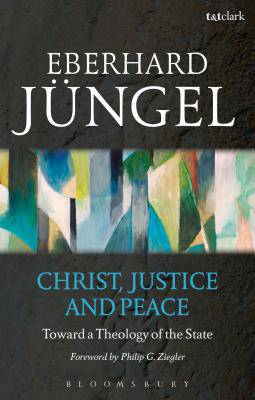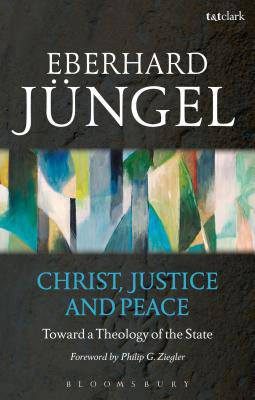
- Retrait gratuit dans votre magasin Club
- 7.000.000 titres dans notre catalogue
- Payer en toute sécurité
- Toujours un magasin près de chez vous
- Retrait gratuit dans votre magasin Club
- 7.000.0000 titres dans notre catalogue
- Payer en toute sécurité
- Toujours un magasin près de chez vous
81,45 €
+ 162 points
Description
Eberhard Jungel is one of the world's most creative Christian thinkers. This is his first explicit examination of the relationship between theology and politics, between the church and state or, as he himself puts it, of 'the political existence of the Christian'. This examination takes the form of a critical theological analysis of the Barmen Theological Declaration - the courageous statement of faith produced in Germany in 1934 in the face of the rise of National Socialism. Jungel explores in particular the fifth thesis, which concerns the state's God-given responsibility to safeguard justice and peace. One of the significant characteristics of this book is its concern to integrate the serious, academic commitment of theology in the service of truth with its necessary existential relationship to the pulpit. Without a coherent grasp of this the church degenerates into a 'characterless club for the cultivation of religion' while academic theology is reduced to a form of spineless irrelevance which shirks its responsibilities to the real world. Jungel's concern is to offer a theology in which rigorous theological commitment and the spiritual life of the church are intergrated.This refreshing book makes significant contributions to the debate concerning the question of natural theology and divine decree, the Lutheran doctrine of the two regiments (kingdoms), the theological grounds of human rights, the ethics of the use of force by the state, the implications for just war theory of the nuclear capability and a whole range of other vital contemporary issues.
Spécifications
Parties prenantes
- Auteur(s) :
- Editeur:
Contenu
- Nombre de pages :
- 136
- Langue:
- Anglais
Caractéristiques
- EAN:
- 9780567339904
- Date de parution :
- 01-12-14
- Format:
- Livre broché
- Format numérique:
- Trade paperback (VS)
- Dimensions :
- 130 mm x 196 mm
- Poids :
- 158 g

Les avis
Nous publions uniquement les avis qui respectent les conditions requises. Consultez nos conditions pour les avis.






